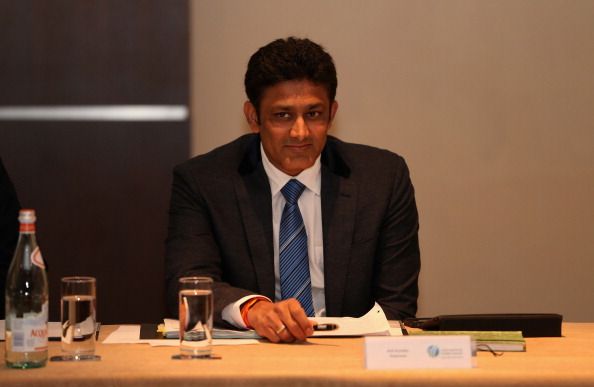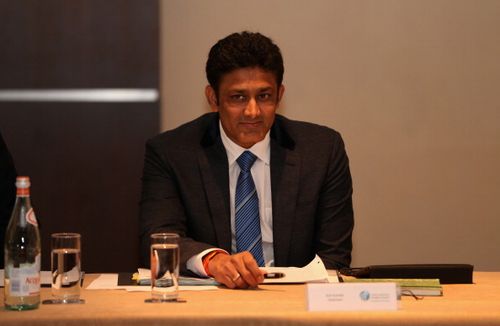
How much have Kumble and Srinath actually helped Karnataka cricket?

The year 2013 is a highly important year for the office bearers of Karnataka State Cricket Association (KSCA).
Reason? This year completes the three-year term of an all-star committee at KSCA which boasts of world renowned players who have turned administrators. Anil Kumble leading the band wagon as the president had defeated his royal highness Maharaja of Mysore Srikanta Dutta Wadiyar to the post back in 2010 while former India pacer Javagal Srinath pipped former Test stalwart Brijesh Patel to be chosen as the secretary of the prestigious club that marked its 75th year of inception.
The committee also includes Venkatesh Prasad, Vijay Bharadwaj, Sujith Somsundar among the rest.
The team, once chosen, was slated to bring an ocean of change in sports administration which often, more so in ‘other’ sports, suffers due to political interests, backlash among board members and corruption.
This team was meant to bring a positive change in every sense.
They perhaps have been able to manage a decent show in terms of giving numerous stadiums across the state a face-lift, renovated the KSCA club house only to make it look like a five-star lounge (estimated sum spent is Rs7 crore) and also substantially provided rural players some basic training facilities.
Most of the above were initiatives already in the pipeline by the former committee but to a large extent much of it wasn’t executed to its potential primarily because of an in-fighting between the then secretary and president.
Kumble’s men work as a team, at least, so they portray it to be.
On many occasions, the leggie’s vested interests or rather ‘conflict of interest’ has given way to a lot of criticism. The very players who had once criticized Brijesh Patel of owning a company that dealt with sponsorship for international matches, etc are involved in running player management companies, take up jobs in other states as coaches and team mentors.
Most of what’s mentioned above is known to the readers for it’s been extensively covered by media. What’s perhaps not brought to public’s notice is that, the grand gala KSCA recently hosted to mark the association’s 75th year saw the committee spend roughly about Rs 4 crore. A whopping sum to celebrate a centenary, don’t you think?
But who are we kidding? It’s cricket, we are talking about and budget amounting to crores of rupees is only a passé.
However, going by the rules of the very association these biggies run: An event of this magnitude or any kind of activities that comes across as ‘hosting a party’ for other members of the association is not permissible during the election year.
It’s also been learnt that much of the funds spent from the piggy bank of the association was not approved by the AGM.
The gala was described as ‘a night to remember’ by media barons and the television rights was sold to a leading regional channel too.
From a starry-eyed spectator’s perspective, this celebration would surely be remembered as the best ever hosted on KSCA soil but was it necessary? Was it legitimate? And most importantly, was it simply a costly affair to keep the voting members on ‘high spirit’?
Point out the discrepancies to the secretary Javagal Srinath and he bursts: “Why can’t some of you write about the positive outcome of the things we are doing in KSCA? Why are you people (certain select media) focused on chasing negative stories?”
He eludes the question.
But was the funds cleared by the AGM to host an eight-day gala? Could the funds not be used to bring up an academy in moffusil area? If hosting such an event during election year is not a big deal then why not disclose how much was spent over it? If it was a night to celebrate the game of cricket, why were some of the former players who were a part of the previous committee snubbed?
The elections are only a few months away and going by the developments in KSCA, the lead-up to it only seems to be mouth-watering for scribes and those who keenly follow politics involved in sports!
Note: Amidst all the drama, Anil Kumble was as usual not available to comment for he speaks only to select publications, a norm that was never followed by his predecessors or rather must not be practiced by administrators.